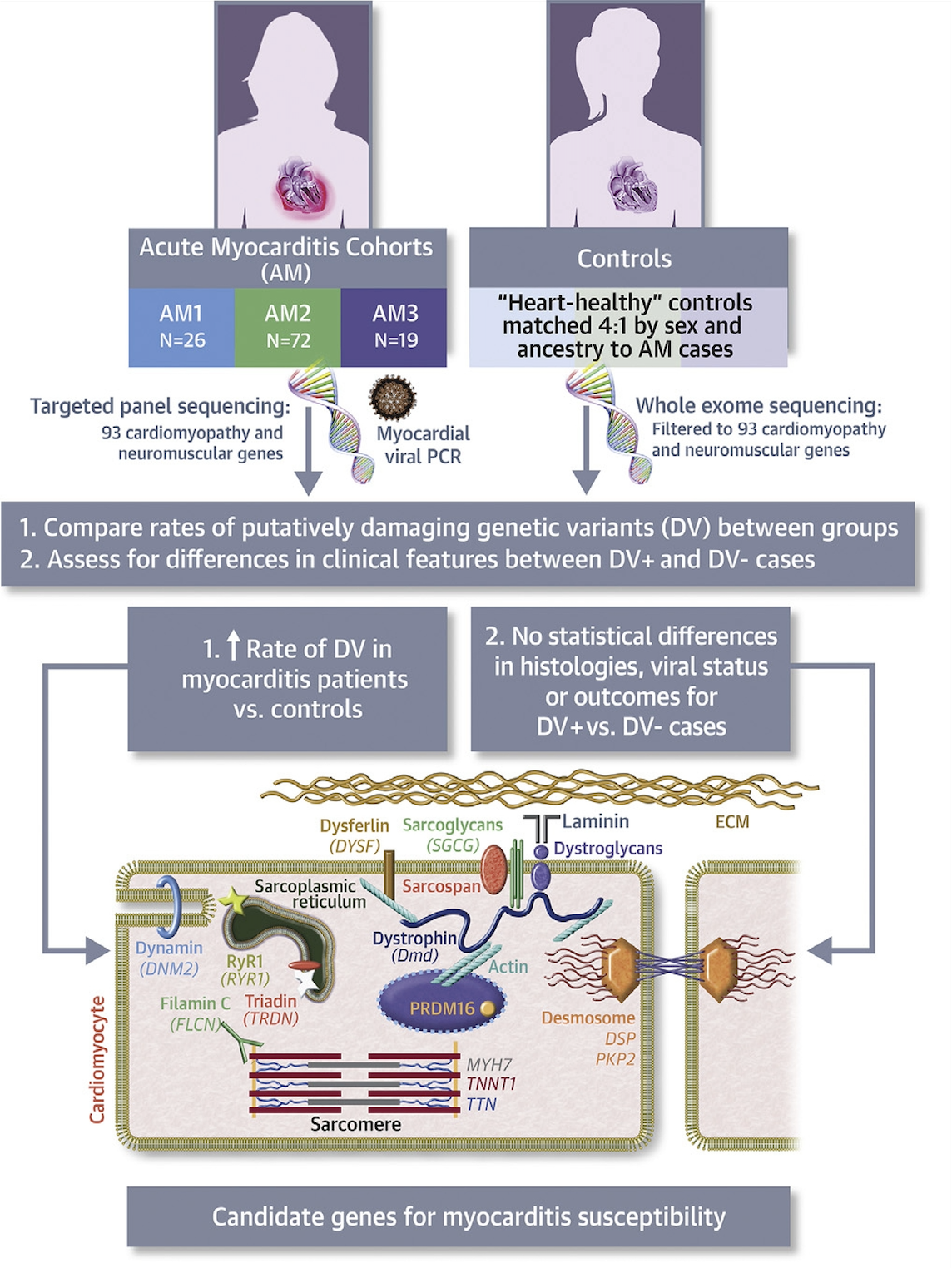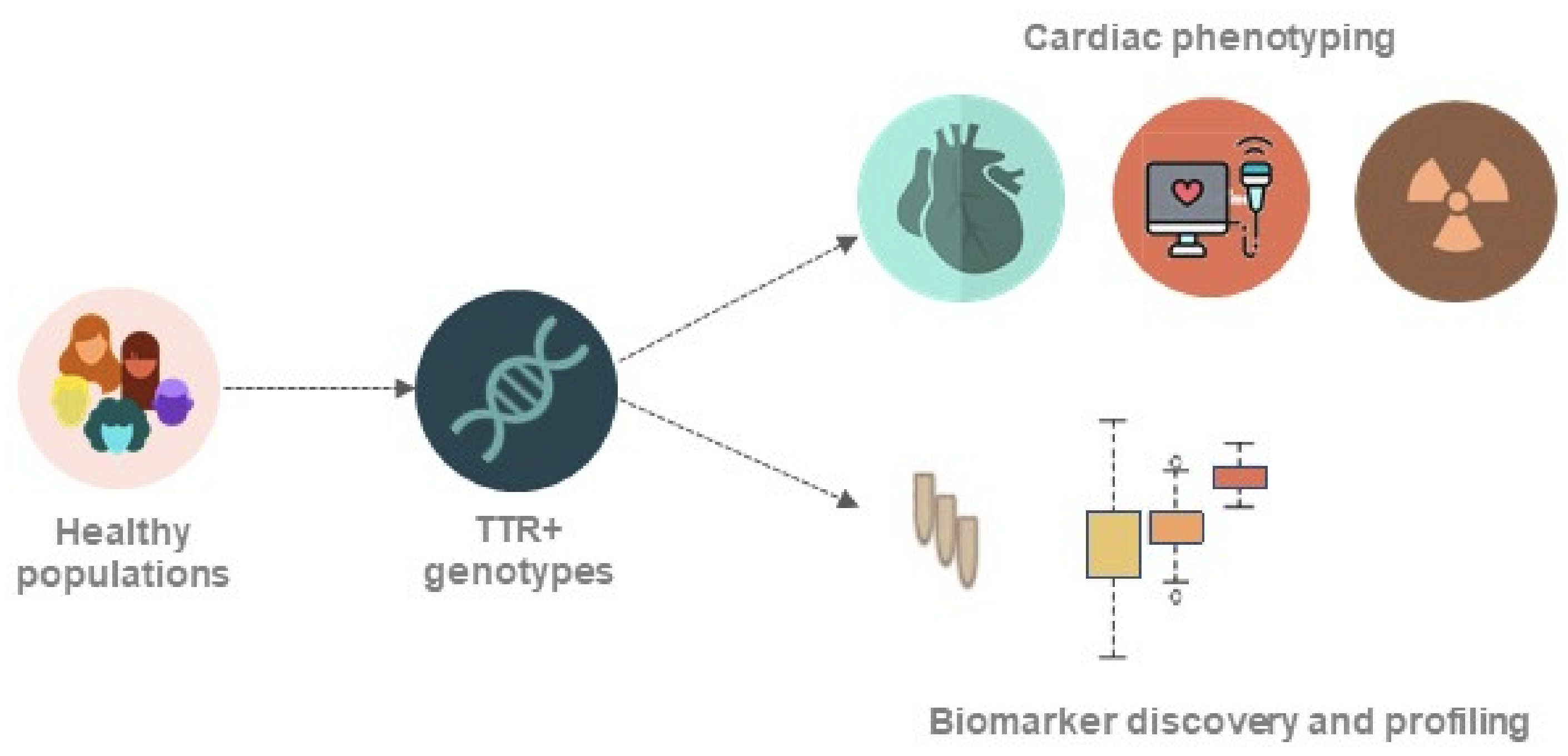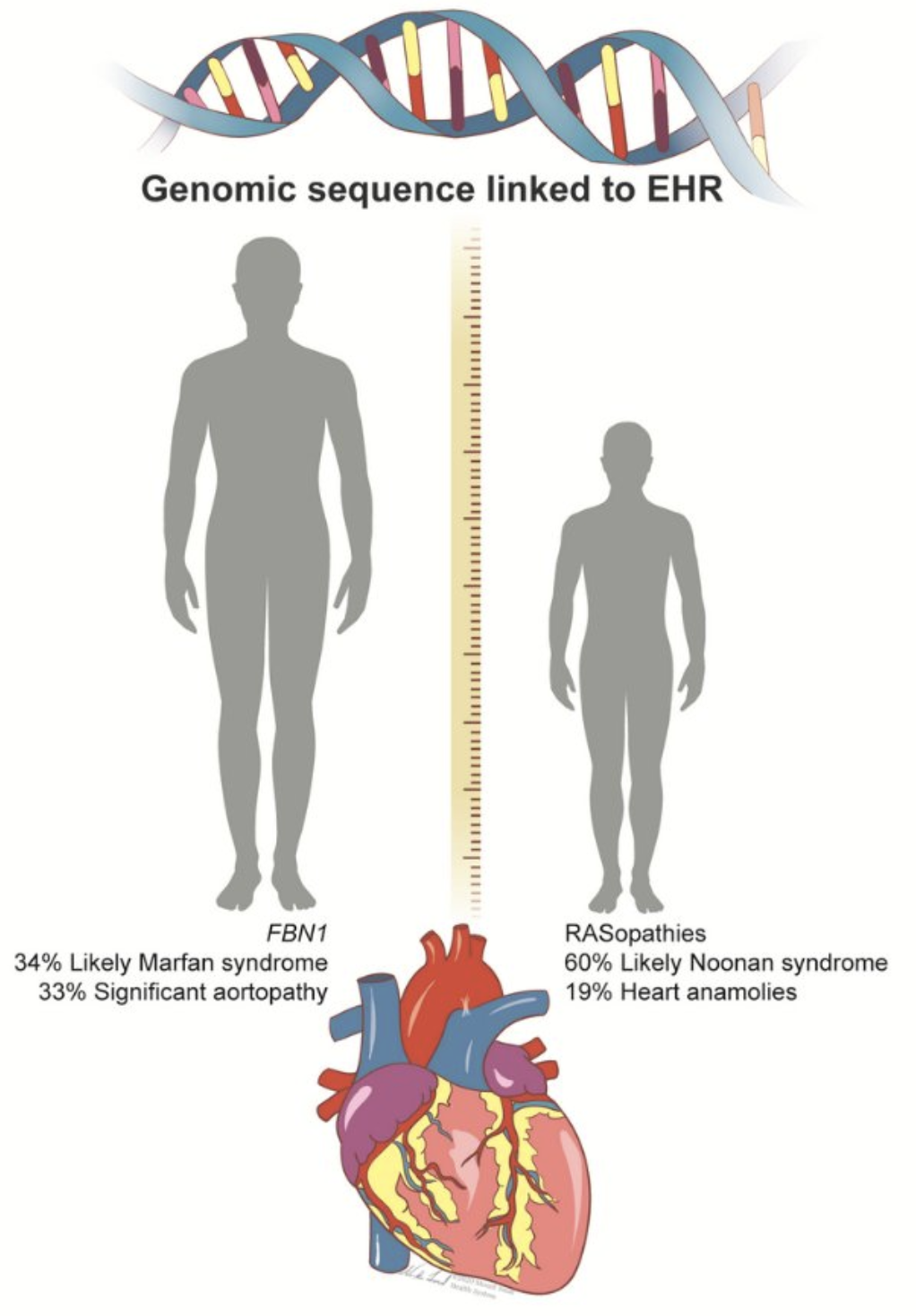Projects
Genetics of myocarditis
Myocarditis is an inflammatory disease of the myocardium responsible for ~12% of dilated cardiomyopathy. Our work, supported by grants from the NIH/NHLBI and NIAID, utilizes an induced pluripotent stem cell platform and genomic sequencing in humans to change the paradigm of this elusive disorder from one that was previously deemed an arbitrary infectious disease to instead a human genetic condition. The research is clarifying genetic susceptibility to viral myocarditis, including “traditional” viruses such as coxsackievirus B3 and the novel SARS-CoV-2 virus, and may soon allow physicians to identify who is most at risk to impact prophylaxis and management.

In a specific application of this work, we are investigating the role of background human genetics in cardiac susceptibility to myocarditis following exposure to the COVID-19 virus, SARS-CoV-2

Legend: A) SARS-CoV-2 is cardiotropic, as evidenced by viral uptake (green, Nucleocapsid protein) in representative wild-type (WT) hiPSC-CM (red, troponin T) cells (blue, nuclei) at 48 hours post infection (h.p.i); scale bar = 25 μm. B) SARS-CoV-2 replication (measured as infectious units per mL, infU/mL) within hiPSC-CM is blunted in the context of loss-of-function mutations in key structural cardiomyocyte genes. * DMD vs. DSC2 p=0.01; † WT vs. DSC2 p<0.01, DMD vs. DSC2 p=0.02; ‡ WT vs. DSC2 p=0.02, DMD vs. DSC2 p=0.03; # WT vs. DSC2 p<0.01, DMD vs. DSC2 p=0.02.
Natural history and penetrance of disease among carriers of pathogenic TTR gene variants
We use a genotype-first approach to investigate the penetrance, temporality and range of expression in hereditary transthyretin amyloidosis (hATTR) using Mount Sinai’s BioMe biobank in a first-of-its-kind study analyzing the full spectrum of health traits linked to hATTR in a large ethnically-diverse population. This work, funded by an NIH/NHLBI R01 grant, and additional support from industry, includes natural history studies, investigating predictive plasma and cardiac imaging biomarkers, and determining optimal modes of surveillance for early disease detection.

Genotype-first investigation of cardiac phenotypes in Mendelian diseases:
Other diseases currently under investigation through the genotype-first approach include aortopathies (i.e. Marfan syndrome), Long QT syndrome, heritable hemorrhagic telangiectasia and cardiomyopathies.

Epidemiology of genetic connective tissue disorders and comorbidities
This work includes investigations in hypermobile Ehlers-Danlos syndrome and hypermobility spectrum disorders, and on associated comorbidities including dysautonomia.
